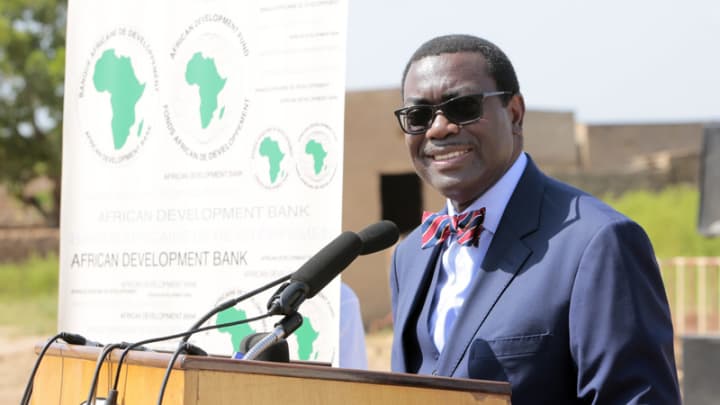
Audio By Carbonatix
African countries are expected to spend around $74 billion on debt service in 2024, the Macroeconomic Performance and Outlook 2024 by the African Development (AfDB) Bank has revealed.
This would be up from $17 billion in 2010.
According to the AfDB, some $40 billion, or 54.0% of total debt service is owed to private creditors.
“Except in Chad, the Democratic Republic of Congo, Gambia, and Mauritania, debt service costs in African countries was higher in 2020–22 than in 2015–19. Debt service payments have risen substantially in tandem with the growing share of debt owed to private creditors".
Debt restructuring negotiations with private creditors failing to reach agreement
This it said is a cause for concern because current debt restructuring negotiations are failing to reach agreement with private creditors.
Presently, Ghana is negotiating a debt restructuring terms with its private creditors. The country is proposing about 40% haircut of up to $13 billion.
The report pointed out that debt service costs have risen, narrowing the scope for government spending and increasing debt vulnerabilities.
“External debt service payments as a proportion of government revenue are higher than before the COVID-19 pandemic in many countries”, it added.
Yields remain high
“Despite the decline in sovereign spreads in many countries, the yields remain higher than pre-crisis levels”, it continued.
For non-distressed countries, the average yield on outstanding Eurobonds has been more than 12% since Russia’s invasion of Ukraine in 2022, compared with 7.0% before the Covid-19 pandemic.
For distressed countries, the yield on outstanding Eurobonds has more than doubled from the pre-crisis level. For instance in Ghana, the yield on outstanding Eurobonds was 21.7% in October 2023 compared with 9.0% before the pandemic.
External debt as a percentage of government revenue for 50 countries with data rose from 6.8% over 2015–19 to 10.6% over 2020–22.
The report continued that resources channeled to debt service have narrowed fiscal space, further constraining government capacity to invest in growth-promoting sectors and human capital development — especially education and health, two areas where average public spending on the continent is below that for comparator regions.
Latest Stories
-
Parliament to probe SHS sports violence; sanctions to apply – Ntim Fordjour
22 minutes -
Upholding parental choice and respecting the ethos of faith-based schools in Ghana
23 minutes -
SHS assault: Produce students in 24 hours or we’ll storm your school – CID boss to SWESBUS Headmaster
48 minutes -
GSTEP inducts Greater Accra finalists, equips young innovators with critical skills for regional showdown
53 minutes -
CID boss warns against school violence after athletics attack in Swedru
1 hour -
Kotoka Int. Airport to introduce 3D scanners, end shoe removal for passengers
1 hour -
Mahama urges private sector participation in industrial water supply reforms
1 hour -
8 injured, 3 in critical condition after SHS violence – Awutu Senya DCE
1 hour -
Interior Minister supports prison inmates with Ramadan food donation
1 hour -
COA targets US$10m in investments for blue food sector through innovation hub
1 hour -
Manufacturing must contribute to 15% of GDP by 2030 – Mahama targets
1 hour -
Sports Minister orders NSA Director General to revoke 17 staff appointments over due process breach
1 hour -
Stabilisation alone won’t transform economy – Mahama
2 hours -
Aaron Kanor appointed Acting Commissioner of Customs
2 hours -
Ashanti police kill suspected robbery kingpin; four accomplices arrested
2 hours

